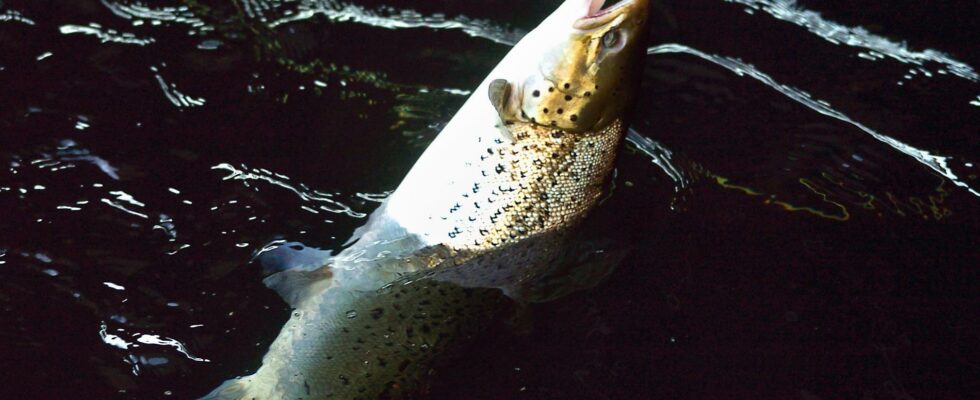unsaveSave
expand-left
full screen It looks like, for the second year in a row, there will be a weak migration of Baltic salmon in the rivers. Archive image. Photo: Björn Larsson Ask/AP/TT
Experts and fishermen testify to a continuing difficult situation for wild salmon in Sweden. Now fishing is stopped in another river.
“Unfortunately, all the signs point to another catastrophically bad year for the rivers,” says Thomas Johansson at the Baltic Sea Salmon Rivers Association.
Last week, salmon fishing in the Råneälven in Norrbotten was stopped. The responsible community association points out that the migrating salmon so far this year are alarmingly few.
On Sunday, it was announced that sport fishing for salmon will also be stopped in the Dalälven.
In total, there is now a ban on killing salmon in six of Sweden’s 16 Baltic salmon rivers.
Last year, a sharp reduction in the number of salmon migrating up the rivers from the Baltic Sea was noted.
– It looks like there will be a weak upward migration in 2024 as well, notes Inger Dahlgren, head of fisheries regulation at the Norwegian Maritime and Water Authority (Hav).
“Serious error”
Evidence from several waterways points in that direction.
An example is the Byskeälven, known as one of the best rivers for salmon fishing, where up to midsummer this year around 1,000 passing salmon were recorded, according to Thomas Johansson, chairman of the organization Baltic Sea Salmon Rivers in collaboration.
That’s around a third of the normal number.
– It looks incredibly dark. Something is seriously wrong with the Baltic Sea, says Thomas Johansson.
Ecosystem out of balance
The wild salmon go out to sea to eat themselves for a few years before returning to their natal rivers to reproduce. For a long time, the stocks of salmon in the rivers in northern Sweden improved, among other things thanks to the reduced quotas for commercial fishing in the Baltic Sea.
It is difficult to find direct causal links to the worsening situation in recent years, which may at best prove to be temporary. But it is known that the environment in the Baltic Sea is under severe pressure from, among other things, eutrophication, fishing and climate change.
– We have an ecosystem that is not quite in balance, says Johan Höjesjö, professor of ecological zoology at the University of Gothenburg.
Trawling in the Baltic Sea of sturgeon, which is food for the salmon, has been highlighted as a problem.
– Unfortunately, it is the prey fish that are trawled up and that instead go to pellet factories to operate with farmed salmon, which is not really pretty, says Johan Höjesjö.
Wide fishing stop in Norway
In Norway, the authorities decided this week to temporarily stop all salmon fishing in the southern parts of the country. A similar, centrally made decision is currently not relevant in Sweden.
– We have not considered that to be necessary yet, says Håkan Carlstrand, investigator at the fisheries regulation unit at Hav.
– On the other hand, we are reviewing the regulations for fish gradually, and in the upcoming review it can certainly be included.
FACT Stop for sport fishing in several rivers
A total stop to killing salmon currently applies in 6 of Sweden’s total of 16 Baltic salmon rivers with wild stocks:
The Råne River
The Kåge river
Sävarån
The heather
The test bank
Eman
Source: Baltic salmon rivers in collaboration
Read more
